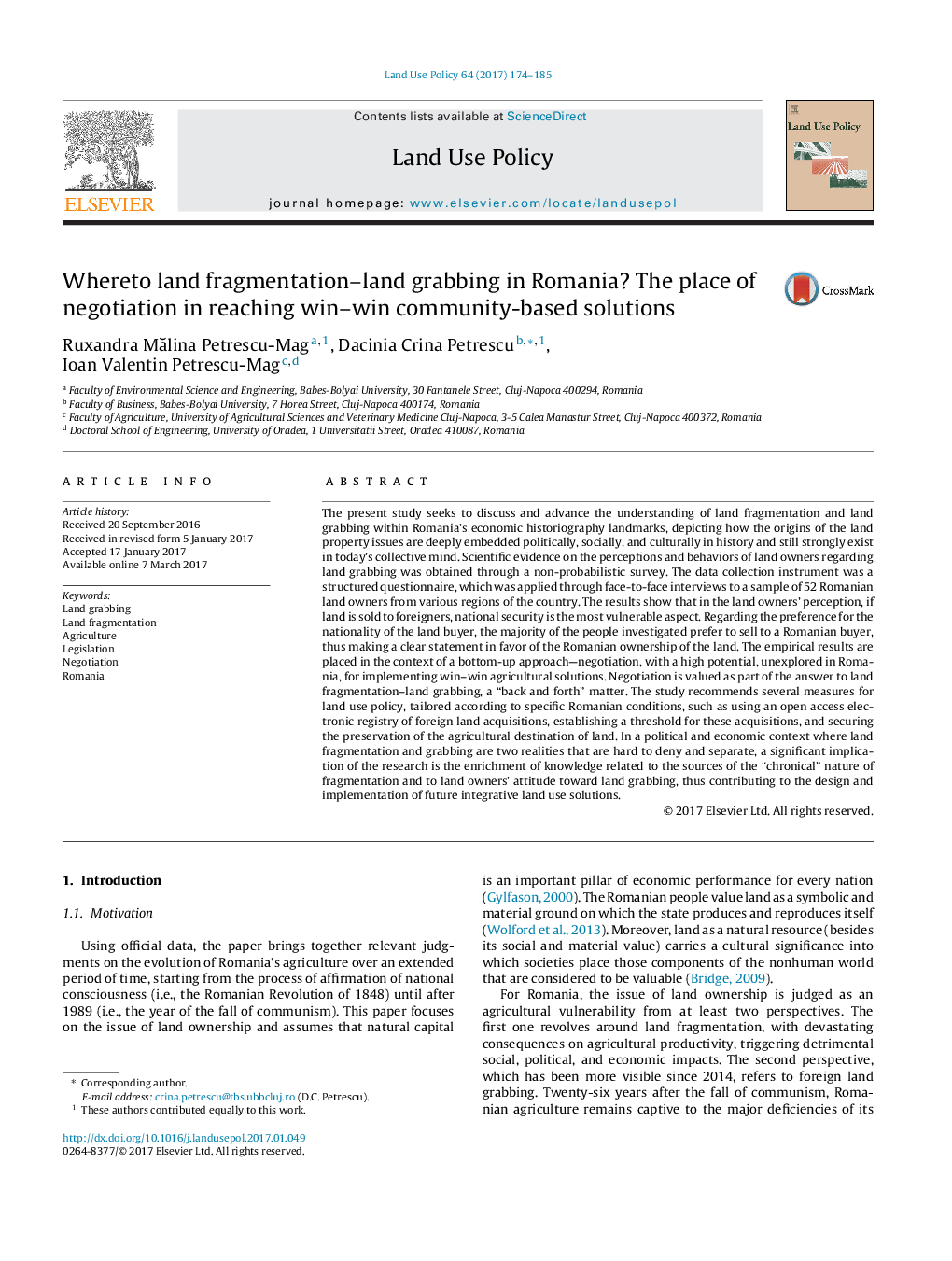| Article ID | Journal | Published Year | Pages | File Type |
|---|---|---|---|---|
| 6460818 | Land Use Policy | 2017 | 12 Pages |
â¢Land fragmentation and grabbing are proven agricultural vulnerabilities.â¢A land property analysis is set within Romania's economic historiography landmarks.â¢The Romanian legislative drift requires a paradigm shift in land use management.â¢Perceptions and behaviors of land owners regarding grabbing are investigated.â¢Survey results are placed in the context of a bottom-up approach-negotiation.
The present study seeks to discuss and advance the understanding of land fragmentation and land grabbing within Romania's economic historiography landmarks, depicting how the origins of the land property issues are deeply embedded politically, socially, and culturally in history and still strongly exist in today's collective mind. Scientific evidence on the perceptions and behaviors of land owners regarding land grabbing was obtained through a non-probabilistic survey. The data collection instrument was a structured questionnaire, which was applied through face-to-face interviews to a sample of 52 Romanian land owners from various regions of the country. The results show that in the land owners' perception, if land is sold to foreigners, national security is the most vulnerable aspect. Regarding the preference for the nationality of the land buyer, the majority of the people investigated prefer to sell to a Romanian buyer, thus making a clear statement in favor of the Romanian ownership of the land. The empirical results are placed in the context of a bottom-up approach-negotiation, with a high potential, unexplored in Romania, for implementing win-win agricultural solutions. Negotiation is valued as part of the answer to land fragmentation-land grabbing, a “back and forth” matter. The study recommends several measures for land use policy, tailored according to specific Romanian conditions, such as using an open access electronic registry of foreign land acquisitions, establishing a threshold for these acquisitions, and securing the preservation of the agricultural destination of land. In a political and economic context where land fragmentation and grabbing are two realities that are hard to deny and separate, a significant implication of the research is the enrichment of knowledge related to the sources of the “chronical” nature of fragmentation and to land owners' attitude toward land grabbing, thus contributing to the design and implementation of future integrative land use solutions.
